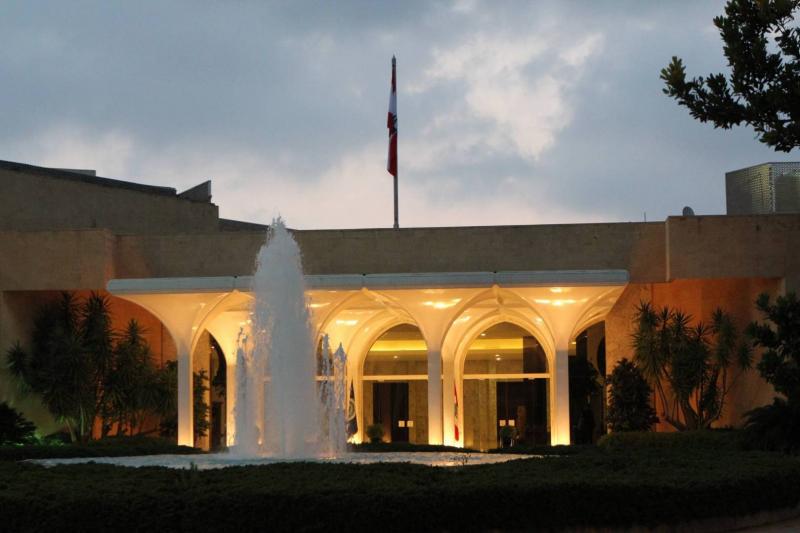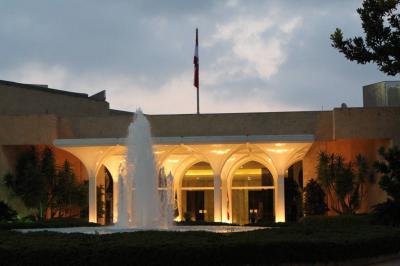Qatar is arguably the Arab country closest to "Hamas" due to its strong financial and political ties that have developed over the years. It maintains distinctive and unofficial relations with Israeli decision-making centers, is unique in its relationships among Arab countries and Iran, and has strategic ties with the United States, especially in mediations it has conducted, the latest being the release of Iranian funds and deposits. Qatar has also achieved significant progress in the ceasefire in Gaza, demonstrating its capability to extend it, and has managed to carve out a political space for its involvement even in Lebanon, where it is considered one of the few Arab countries, if not the only one, providing direct assistance to the Lebanese army.
Qatar is seeking to play a mediating presidential role, evolving from endorsing a candidate to gauging opinions on several names it finds suitable for the presidency. During his recent visit to Qatar, caretaker Prime Minister Najib Mikati asked Qatari officials for help with the Lebanese presidential file, leading to the arrival of their envoy, Jassim Al Thani, to explore developments regarding the presidential elections. Mikati intentionally sought to break the stalemate and create Arab dynamics concerning the situation in Lebanon. Government sources assert that Mikati, through his visits, is working to encourage the countries he visits to assist Lebanon, and he had requested the Qataris to resume the presidential initiative as a precursor to resolving other pending issues.
However, Mikati's desires were not fully realized, as the Qatari envoy, who came with the intent to help, could not register any new developments regarding the presidency. He did not perceive any progress regarding the positions of the involved parties, finding that each side remains entrenched in its positions, particularly the "Shiite duo" that continues to support the candidacy of Sleiman Frangieh. Although they did not object to the names that were presented to them, they merely reaffirmed their commitment to Frangieh.
Qatar observes the ongoing disputes over the proposed candidates, and given that each candidate has obstacles preventing their ascension to the presidency, there must be an agreement on a new name. Unlike his previous visit, where discussions were confined to the names of Jihad Azour and Sleiman Frangieh, the Qatari envoy has now included the army commander among the names being nominated against Frangieh, suggesting the withdrawal of both names in favor of a third candidate, the interim director general of the General Security, Elias Al-Baysari, who presented his candidacy in place of the army commander.
Qatar, the primary supporter of the army commander's candidacy, which had previously communicated with parliamentary bloc leaders during the last visit regarding its support, is now dealing with the army commander as a presidential candidate lacking the backing needed for victory. Based on this principle, an extension is being proposed as compensation for the presidency.
Among those whom the Qatari envoy met was Hussein Khalil, the political assistant in "Hezbollah," where discussions regarding names and obstacles concerning candidates were held. The party's response indicated that it remains committed to supporting Frangieh's candidacy and will continue to uphold it. "Hezbollah" believes that there is nothing substantive in the presidential race at present, and the Qatari envoy proposed an agreement on the names of candidates, including former minister Nasif Hatti and Al-Baysari, who has strong relationships with everyone, although such a factor would not serve as a reason for his election.
Both "Hezbollah" and the "Free Patriotic Movement" listened to the proposals, with the party, as well as Speaker of Parliament Nabih Berri, emphasizing support for Frangieh. Meanwhile, the head of the "Free Patriotic Movement," Gibran Bassil, did not oppose Al-Baysari's nomination to avoid appearing as a hindrance rejecting any proposed names. He also inquired about the possibility of reaching an agreement on a comprehensive package involving an exchange between the presidency and the premiership.
In evaluating his visit, multiple political figures who hosted him and heard his proposals agree that his visit was aimed at demonstrating presence and gauging officials' sentiments concerning any new developments in the presidential file. He left empty-handed except for a report he prepared about the visit, which yielded no new outcomes. Informed sources indicated that his movements are part of a series of sequential steps Qatar aims to take to reactivate the presidential file by proposing a comprehensive settlement that begins with the election of the president and includes the agreement on the prime minister and key appointments. What Qatar suggests is widely discussed, even if it has not yet matured, awaiting certain shifts, as the decisive word lies in the Gaza arena.




